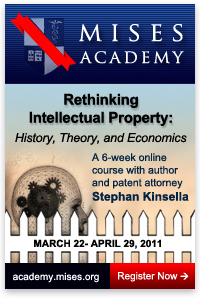Distill THIS! (or: How The State Gives Small-Scale Distilleries Nightmares)
Business, Corporatism, StatismA friend shares the following story:
I was talking with a buddy of mine last night: a lawyer currently working for the state, getting his MBA on the side. He’s been researching the possibility of setting up a distillery firm, and we talked about it for close to an hour. Very interesting stuff, and he’s got some great ideas for how to break into the market and his unique angle.
But the funny part is that probably 45 minutes of that hour was spent talking about his strategy in light of the manifold regulatory hoops and tax laws he has to navigate. Between licensing and taxes, which as you can imagine for hard liquor are absurd, his business model is 100% dominated by meeting the requirements of the state. Some examples: before you can boil an ounce of alcohol, you need local, state, and federal licensing in place. You can’t get the federal until you have the state and local in place, and getting all three takes anywhere from 8-24 months. The problem is that to fill out the paperwork you have to have the facility, equipment, stock, etc. all in place and ready to go; you can’t fill out paperwork for a nonexistent distillery. So he’s looking at having to hold a facility with the equipment for two years while the feds sit around.
You can’t just put up or rent any building, either. Your firm’s place of business has to be in a Class 3 piece of land, which basically means you have to set up out in the middle of nowhere or in a really depressed part of a city. (He lives very close to Baltimore, so he’ll be going for the latter.)
…
Distill THIS! (or: How The State Gives Small-Scale Distilleries Nightmares)Read More »
Distill THIS! (or: How The State Gives Small-Scale Distilleries Nightmares) Read Post »


